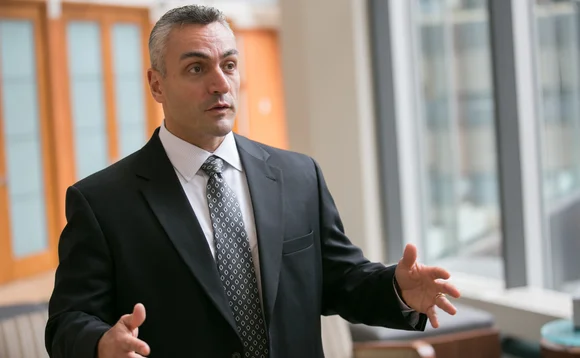Cerberus CIO Richard Alexander's A-Team






Cerberus’ data overhaul is perhaps best portrayed by its recent, first-ever Form PF filing, the new regulatory requirement born out of the Dodd–Frank Act, designed to allow the US Securities and Exchange Commission (SEC) to monitor systemic risk among private funds. The firm is required to file for its hedge fund and private equity businesses, both data-intensive undertakings, the likes of which have rarely, if ever, been seen on the buy side. While many firms fretted when pulling these data points together, Alexander says his team had confidence in its data warehouse and the fact that it had a repository that collected the data across multiple functions.
“It wasn’t the easiest task in the world—we knew it was a big endeavor—but we felt great because we had a repository that collected the data across the organization,” Alexander says, adding that this was also the case with Form ADV to register as an investment advisor with the SEC. The firm’s chief compliance officer, Andrew Kandel, recently completed Cerberus’ annual audit and praised the systems that Alexander’s team had built for providing accurate and timely information.
The Job at Hand
With the data warehouse and datacenter now fully operational, Cerberus is setting its sights on its order management system (OMS). Alexander says his team is nearly done completely replacing its proprietary OMS with Eze Castle Software’s Eze OMS. Cerberus also announced this year that it would use JPMorgan as its fund administrator—a surprisingly IT-intensive switch.
“The onboarding to JPMorgan required a lot of IT work and still does—we send them data in a secure manner, and, unlike many firms that use third-party administrators, we ask for the data back because we want it in our data warehouse so we can run various reports, valuations, rates of return, algorithms and models,” he says.
Additionally, Cerberus has built a new website that Alexander says has been helpful in generating deal leads and investor inquiries.
Alexander and his staff—known as the “A-Team,” a reference to the CIO’s name and the 1980s TV show, coined by one of his engineers—will continue to look to improve its dashboards and the self-service portals. They will also look to enhance the firm’s ability to manage reporting across funds for net asset value (NAV) packages, during the valuation process, and for “shocking” portfolios and carrying out stress-tests. Alexander says he wants all of those things to happen out of the data warehouse.
Measuring Up Mobile
Alexander says he has started to consider the firm’s mobile strategy, even if it isn’t top-of-mind. Cerberus already has a bring-your-own-device (BYOD) program in place, using third-party technology to separate personal and business activities on phones owned by the employees, who are required to sign on to a strict internal policy.
There are new security risks posed by the increasing ubiquity of tablets on Wall Street, and Alexander says down the road, Cerberus will address portfolio managers and traders’ abilities to tap into tablets like the Apple iPad. “No one is currently knocking down the door asking for it,” he says. Still, Alexander adds, it’s important that he, and Cerberus, don’t find themselves in a state of catch-up. So he’s mulling over a mobile technology strategy, but he's not yet ready to execute on it.
Developing a Leader
Alexander relishes being a leader, even if he no longer gets to work on the day-to-day nuts and bolts of developing infrastructure and applications. At GE Commercial Finance, where he landed after serving stints at the US State Department and manufacturer UST, Alexander earned his Black Belt in Six Sigma certification, and even received a patent for digital workflow on deal approval, and how firms can digitize the workflow from customers’ initial inquiries through to funding. Through the automated solution, GE was able to reduce cycle times from four months to a matter of days, Alexander says.
GE was also Alexander’s first foray into being a CIO, and he led technology for GE Capital's Health Care Financial Services division. But in the beginning, he says he was too hands-on, and didn’t know how to delegate. While he had many natural leadership qualities, some things had to be learned.
“I realized that I had to be a transparent leader and management needed to know the team behind me was getting the job done,” he says. “That’s when I realized that to be transparent, I had to delegate and let them execute without always being hands-on.”
Delegation requires stepping back, which can create pressure and discomfort for both the person being delegated to, as well as the delegator. But without effective delegation, change would be too slow and the status quo would go unchallenged. This is unacceptable at Cerberus—and that gets Alexander excited about going to work every day.
Only users who have a paid subscription or are part of a corporate subscription are able to print or copy content.
To access these options, along with all other subscription benefits, please contact info@waterstechnology.com or view our subscription options here: http://subscriptions.waterstechnology.com/subscribe
You are currently unable to print this content. Please contact info@waterstechnology.com to find out more.
You are currently unable to copy this content. Please contact info@waterstechnology.com to find out more.
Copyright Infopro Digital Limited. All rights reserved.
As outlined in our terms and conditions, https://www.infopro-digital.com/terms-and-conditions/subscriptions/ (point 2.4), printing is limited to a single copy.
If you would like to purchase additional rights please email info@waterstechnology.com
Copyright Infopro Digital Limited. All rights reserved.
You may share this content using our article tools. As outlined in our terms and conditions, https://www.infopro-digital.com/terms-and-conditions/subscriptions/ (clause 2.4), an Authorised User may only make one copy of the materials for their own personal use. You must also comply with the restrictions in clause 2.5.
If you would like to purchase additional rights please email info@waterstechnology.com
More on Emerging Technologies
Tape bids, algorithmic trading, tariffs fallout and more
The Waters Cooler: Bloomberg integrates events data, SimCorp and TSImagine help out asset managers, and Big xyt makes good on its consolidated tape bid in this week’s news roundup.
DeepSeek success spurs banks to consider do-it-yourself AI
Chinese LLM resets price tag for in-house systems—and could also nudge banks towards open-source models.
Standard Chartered goes from spectator to player in digital asset game
The bank’s digital assets custody offering is underpinned by an open API and modular infrastructure, allowing it to potentially add a secondary back-end system provider.
Saugata Saha pilots S&P’s way through data interoperability, AI
Saha, who was named president of S&P Global Market Intelligence last year, details how the company is looking at enterprise data and the success of its early investments in AI.
Data partnerships, outsourced trading, developer wins, Studio Ghibli, and more
The Waters Cooler: CME and Google Cloud reach second base, Visible Alpha settles in at S&P, and another overnight trading venue is approved in this week’s news round-up.
Are we really moving on from GenAI already?
Waters Wrap: Agentic AI is becoming an increasingly hot topic, but Anthony says that shouldn’t come at the expense of generative AI.
Cloud infrastructure’s role in agentic AI
The financial services industry’s AI-driven future will require even greater reliance on cloud. A well-architected framework is key, write IBM’s Gautam Kumar and Raja Basu.
Waters Wavelength Ep. 310: SigTech’s Bin Ren
This week, SigTech’s CEO Bin Ren joins Eliot to discuss GenAI’s progress since ChatGPT’s emergence in 2022, agentic AI, and challenges with regulating AI.








